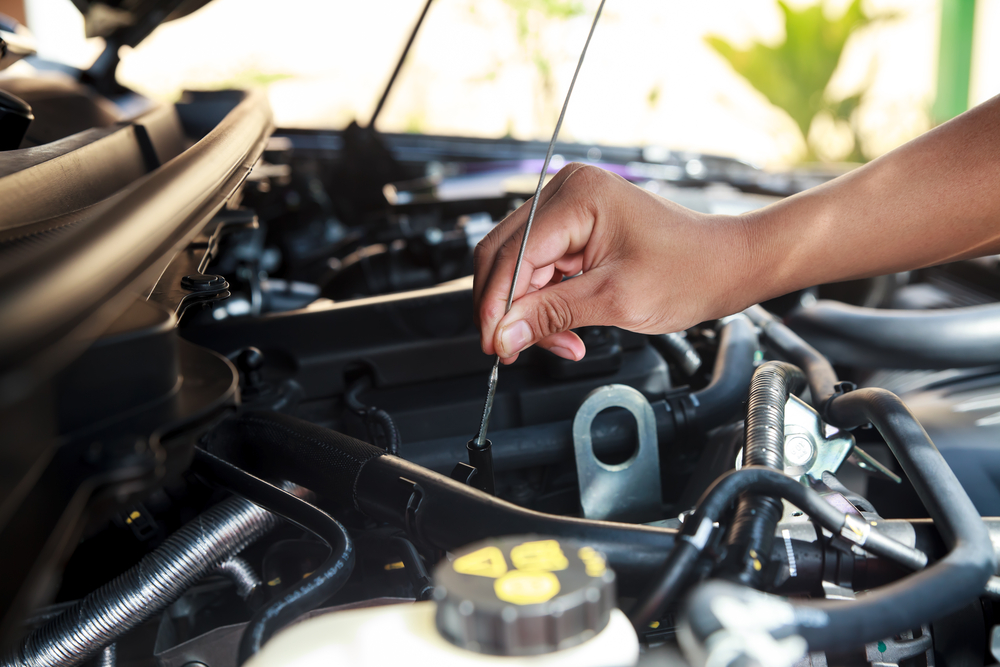All Categories
Featured

When it comes to car upkeep, one of the most vital tasks to guarantee your engine's longevity and performance is normal oil changes. Engine oil serves as the lifeline of your car's engine, giving lubrication, reducing friction, and assisting to dissipate warm.
- Lubrication and Minimized Friction. Engine oil plays an essential duty in lubricating the relocating components of your engine, such as camshafts, pistons, and crankshafts. As these components interact under high pressure and temperature level, rubbing is unavoidable. Without proper lubrication, rubbing can result in too much wear and tear on engine elements, increasing the risk of engine damage or failure. Fresh oil is created to produce a thin layer in between these components, allowing them to move efficiently without grinding against each various other. With time, oil breaks down and ends up being infected with dirt, steel fragments, and burning by-products, which can hinder its capacity to lubricate properly.
- Warmth Dissipation. Engine oil aids dissipate this warmth, maintaining your engine at an ideal temperature level. As the oil flows through the engine, it soaks up warm and carries it away from the relocating components. An overheated engine can result in serious damages, such as warped elements, confiscated pistons, or also total engine failing.

- Stopping Sludge Accumulation. As engine oil breaks down over time, it becomes thicker and much less reliable at lubricating and cleaning the engine. Regular oil modifications guarantee and remove this sludge that your engine remains clean and well-lubricated.
- Enhanced Engine Performance and Gas Effectiveness. When your engine oil is fresh, it assists keep the engine's moving components running at peak effectiveness. By changing your oil consistently, your engine will run a lot more efficiently, making the most out of every drop of fuel and improving your vehicle's total efficiency.
- Extending the Life of Your Engine. Engines are pricey to replace or fix, and their life expectancy is directly affected by how well they are kept. Routine oil modifications can significantly extend the life of your engine by making sure that it performs at its ideal for as long as feasible. Fresh oil helps decrease the stress on crucial engine components, reducing wear and preventing costly malfunctions. By remaining on top of oil changes, you're spending in the long life of your car, saving cash in the lengthy run.
- Supplier's Warranty Needs. For new cars, many manufacturers need you to adhere to a specific upkeep routine to maintain your warranty intact. Failure to perform regular oil changes can invalidate the guarantee, leaving you accountable for any kind of repair work prices that develop as a result of engine damages. Be sure to follow the advised oil change intervals outlined in your owner's manual to ensure that your guarantee stays legitimate and your engine stays secured.
- Enhanced Resale Value. A well-maintained car is constantly a lot more appealing to possible purchasers. Staying up to date with normal oil adjustments reveals that you have actually taken good care of your automobile and have prioritized its health and wellness. This can improve the resale value of your auto, as potential customers will be a lot more positive in the condition of the engine and the overall dependability of the car.

Conclusion. Regular oil modifications are just one of the most basic and most efficient ways to secure your automobile's engine. By keeping correct lubrication, heat dissipation, and sanitation, you make certain that your engine operates efficiently and lasts longer. Keep in mind to inspect your vehicle's proprietor manual for the advised oil modification intervals, and if you're uncertain, consult with your auto mechanic. By remaining on top of oil changes, you're not just safeguarding your engine's wellness, however additionally improving efficiency, gas efficiency, and your cars and truck's resale worth.
Latest Posts
Find Out Reduce Expenses on Car Maintenance with Montclare Auto Repair’s Limited-Time Deals
Published May 26, 25
1 min read
Uncover Oil Changes & More: Complete Services Guide from Montclare Auto Repair
Published May 25, 25
1 min read
Unlock Your Financial Partner at WyHy – Top Benefits for Your Money Goals
Published May 25, 25
1 min read
More
Latest Posts
Find Out Reduce Expenses on Car Maintenance with Montclare Auto Repair’s Limited-Time Deals
Published May 26, 25
1 min read
Uncover Oil Changes & More: Complete Services Guide from Montclare Auto Repair
Published May 25, 25
1 min read
Unlock Your Financial Partner at WyHy – Top Benefits for Your Money Goals
Published May 25, 25
1 min read